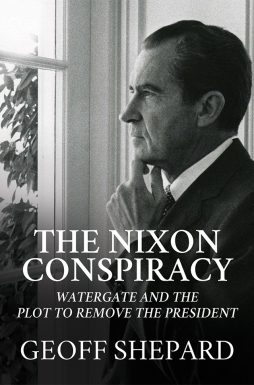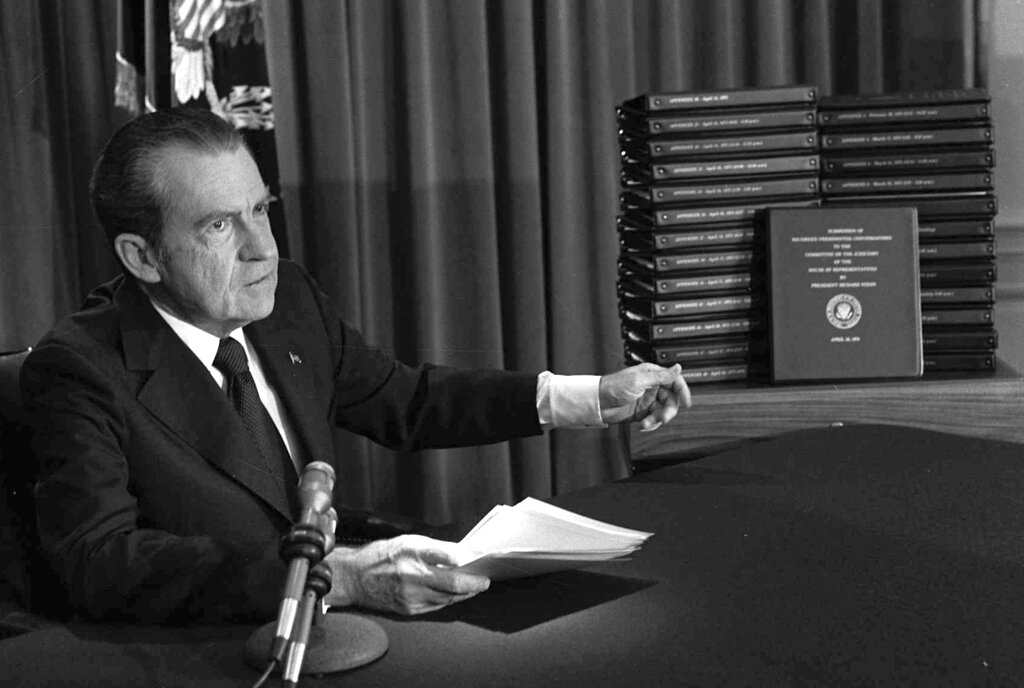It’s taken decades of work, but a former aide’s campaign to clear Richard Nixon’s name in the 1972 Watergate scandal has finally reached the Justice Department, with the aide seeking an investigation into allegations of prosecutorial misconduct and a “deep state” conspiracy to take Nixon down.
But first, he needs people to open up to the idea that the most scandalized president in modern history might not have done what he was accused of, leading him to resign in 1974 amid an impeachment threat.
“Nobody cares. Every Republican you know has made their peace with the Nixon situation decades ago,” said Geoff Shepard, the author of three books on Watergate, the latest of which, The Nixon Conspiracy: Watergate and the Plot to Remove the President, will be released Tuesday.
“It’s so obvious that it’s undeniable. But the public doesn’t want to hear it. The politicians don’t want to hear it. The news media doesn’t want to print it,” he said in an interview to discuss his gripping history of the affair and the effort to force Nixon to resign.

Shepard’s credibility is hard to challenge. He was an insider who turned on Nixon after hearing one of the most critical secret tape recordings in the Watergate case. In fact, he is credited with dubbing the tape the “smoking gun” because he believed it tied Nixon to the Watergate cover-up.
Only later did Shepard change his mind when he realized that Nixon was running through options in the scandal, not approving a hush payment in the case.
And more recently, he forced the release of the secret prosecutor’s “road map” used to convince a grand jury to indict key Watergate figures and egg on the impeachment inquiry that turned out to be a hoax, somewhat similar to the “dossier” used to spark the FBI investigation of former President Donald Trump.
“They knew it was a lie, and they made it up,” Shepard said. That road map, however, was never revealed to Nixon’s defense team and was sealed until 2019, when Shepard got it released. It is a central piece of his latest book, published by Bombardier Books.
He also found out that several members of the Watergate Special Prosecution Force, then headed by prosecutor Archibald Cox, improperly left the group with their documents. In some, they described how they worked with the anti-Nixon judge in the case, John Sirica, to get Nixon — a big legal no-no.
Shepard is asking the DOJ’s Office of Professional Responsibility to investigate his allegations and hopes it will lead to reversals of the convictions of key Nixon aides. He cited a similar case of prosecutorial misconduct that forced a court in 2009 to set aside the conviction of former Alaska Sen. Ted Stevens.
“The Watergate prosecutions occurred decades ago, but the prosecutorial wrongdoing was truly overwhelming — perhaps because there was no effective DOJ oversight of the Watergate Special Prosecution Force,” he wrote in a letter to the DOJ.

“Once their hero Archibald Cox had been fired in the Saturday Night Massacre, they adopted a ‘scorched earth’ approach to investigate and prosecute anyone associated with the Nixon administration. The Department of Justice owes it to itself — as well as to the American public — to look into what resulted,” he added.
As for Nixon, Shepard wrote in his book that he has a special request of the Justice Department: “an apology.”
During his search into Watergate, Shepard has become the authority on the affair, posting all the relevant documents touched on in his three books about it online for others to research.
“What my wife calls my ‘Nixon obsession’ has sort of dominated my life for the past few years,” he said.
